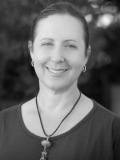Flowcon SF 2014, September 3-4 San Francisco, California
Lane Halley, TweetProduct Designer and FlowCon Program Committee Member

Biography: Lane Halley
Lane Halley uses lean
design & agile development methods to create Web & mobile products. Lane worked at Carbon Five, as a UX coach and trainer (LUXr), an in-house design manager (Liquidnet), an agency designer (Cooper, Hot
Studio) a director of User Experience (SenSage)
and a video game producer (Mindscape/Electronic
Arts).
Lane seeks to blend the best practices of UX, agile and Lean Startup methods. She was the UX track host for QconSF 2012 and co-chair of the User Experience stage at Agile 2009. Lane is a frequent
collaborator with Lean Startup Machine,
Los Angeles StartupWeekend and StartupUCLA as a speaker and mentor.
Recent speaking engagements include Agile UX
NYC and the Michigan
Lean Startup Conference.
Twitter: @thinknow
Blog: "The Apprentice Path"
Presentation: TweetConference Close
Workshop: Open Space Day Tweet
After Flowcon 2013, our participants told us they would like more opportunities to meet people and talk about the conference topics. This year we’ve added a second day for workshops and an open space event.
At an open space event, people discuss things they care about with other people who share similar interests. An open space event promotes agile values of collaboration, conversation and self-organization. Open space events are used to surface common concerns, brainstorm solutions to a problem or simply to exchange information. At the start of the open space event, participants generate a list of potential conversation topics, choose what to talk about, organize into small groups, engage in conversation and then present their conclusions back to the larger group. The outcome of an open space event is a view into the hot topics that exist among your professional community, a chance to share your thoughts with peers, and learn what other people think. It’s also an excellent way to network and make new professional connections.
For more information about open space technology, see this article from wikipedia.
